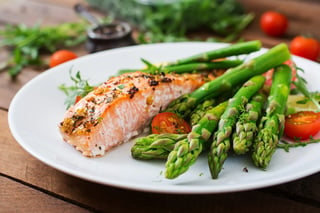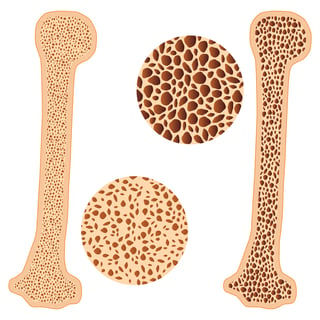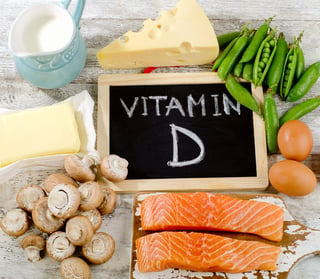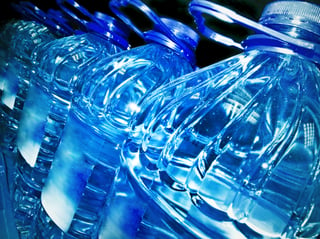
Aging is part of life, and with it, comes challenges that can make everyday life more difficult. One of these challenges is regarding mobility. Mobility problems you may notice can be:
- Unsteadiness when walking
- Difficulty sitting for longer periods
- Difficulty standing up after sitting
- Being more prone to falling
Common conditions that contribute to mobility problems in older people are:
- Muscle weakness
- Joint problems
- Pain
- Chronic diseases
- Neurological difficulties
The most common mobility problem that senior adults experience is falls. Unfortunately, falls usually lead to broken bones, fractures, severe bruising, and anxiety about falling again.
falls usually lead to broken bones, fractures, severe bruising, and anxiety about falling again.
The bones of elderly adults that break from a fall take much longer to heal than they would have in their younger days, often due to osteoporosis and other bodily changes.
Falls can lead to full time use of a cane, walker, or even a wheelchair, and falls are a major cause of disability and death among the elderly.
Fortunately, there are techniques you can use to help prevent falls from happening.
One very important part of your life to pay close attention to is your nutrition.
Proper nutrition not only helps prevent falls by making your bones and muscles stronger to begin with, it also helps your body heal quicker if you should suffer a fall.
Aging Affects Nutritional Needs
Getting older means you have a new, special set of nutritional needs which can make it difficult for you to get the proper balance of nutritional foods.
For instance, if you have experienced a fall and are nervous to move around, then your lack of exercise has probably caused your body mass to increase.
These body transformations happen gradually and can sneak up on you without you even noticing.
Due of these changes, it may be necessary to adjust what you are eating, how much of it you are eating, and when you eat it.
As you get older, your metabolism is slowing down, your digestive system is changing which may affect appetite, your taste buds change which affect the way you taste foods, and your changing emotional health all add up to new nutritional needs.
Sticking to a healthy diet can be difficult, but there are ways to help you manage this change. It’s small, incremental changes that can keep you on the path to success.
Take a look below for some important nutrients and ways you can get the proper amount.
Load up on Vitamin B12
Vitamin B12 creates red blood cells and can help with DNA and maintaining nerve function.
It can be challenging for you to get the proper daily amount of Vitamin B12 in your diet.
It’s important to eat plenty of fish, poultry, meat, eggs, cheese, and milk products. These are a great source of Vitamin B12.
Also, check with your doctor to see if a Vitamin B supplement may be right for you.
Folic Acid/Folate
Folate is another B vitamin that has been linked to anemia in elderly people who have a deficiency.
If you are not eating enough fruits and vegetables, you are likely short on folate. The good news is a lot of breakfast cereals have folate added to them which makes folate deficiencies less common.
However, it is still important to eat plenty of fruits and vegetables and consider a folate supplement if recommended by your doctor.
Calcium
Calcium has a lot of roles to play in your body. Most important for you is the building and maintaining of bone strength. Studies show as people get older, their calcium intake decreases.
This is a major reason why so many falls in elderly people lead to broken bones. If your body isn’t getting enough calcium, it will take it from your bones which weakens them.
Your goal is to have 3 servings a day of low-fat dairy products. These products can be milk, cheese, yogurt, or any other dairy product.
If these foods are hard for you, consider juices fortified with calcium as well as broccoli and kale.
Get creative and indulge in a healthy smoothie or calcium fortified ice cream.
Vitamin D
Vitamin D helps your body absorb calcium, maintain strong bones, and can help prevent  osteoporosis. Recent studies have shown Vitamin D may protect against cancer, Type 1 diabetes, arthritis, and some autoimmune diseases.
osteoporosis. Recent studies have shown Vitamin D may protect against cancer, Type 1 diabetes, arthritis, and some autoimmune diseases.
In older patients it has been found that frequent falling and a deficiency in Vitamin D go hand in hand.
A quick, easy way to get your daily dose of Vitamin D is to spend some time in the sun to let your bare skin soak in the rays.
However, not everyone can do this. Many foods are fortified with Vitamin D including cereals, some yogurts, juices, and dairy products.
Salmon, tuna fish, and eggs are also other great ways to get your Vitamin D. Vitamin D supplements are also available and can be a great help if approved by your doctor.
Fiber
Fiber helps you digest food and get it smoothly through your system. Most Americans, young and old, get only half the recommended daily fiber intake.
Get the recommended amount of fiber by eating vegetables, whole grains, fruits, beans, and nuts.
There are also fiber supplements, drinks, and bars that can make getting your fiber intake a little more “sweeter”.
Check with your doctor and discuss what are the best methods for you to get the proper daily intake of fiber.
Magnesium
It’s important to get enough magnesium in your body to keep your immune system in tip top shape.
If you often have a cold or get sick, a lack of magnesium could be part of the problem.
Magnesium also plays a role in strong bones and heart health.
Magnesium is lost when foods are processed.
Stay away from canned and processed foods and load your plate up with fresh fruits, beans, seeds, vegetables, and nuts.
Potassium
Potassium plays a roll in your cell function, help reduce blood pressure, and can decrease your risk of painful kidney stones.
Banana, plums, prunes, and potatoes are rich in potassium. If your considering potassium supplementation, please consult your doctor first.
While too little potassium is a health risk, too much potassium can be a health risk as well.
Omega-3 Fats
Omega-3 fats are found primarily in fish. The health benefits are great and include slowing the progression of macular degeneration (an eye disease that can cause vision loss) and reducing the symptoms of arthritis.
Studies have shown an increase in cognitive function and may reduce your change of developing Alzheimer’s disease.
It is recommended to have at least 2 fish meals per week to help get the proper levels of omega-3 fats.
These fish can include salmon, mackerel, tuna, or sardines. Don’t enjoy fish?
Try soybeans, flaxseed, some nuts, or cook using canola oil. As is usually the case, there are omega-3 supplements available.
Before you decide to take these, run it by your healthcare professional and see if they think it’s a good idea for you.
Water
Water is truly the elixir of life. Drinking enough water is essential to maintaining  your overall health.
your overall health.
As you get older your thirst may naturally decline or the medications you take could dehydrate you.
3-5 glasses is an ideal daily goal for your water intake.
A great way to tell if you're drinking enough water is the color of your urine.
If your urine is bright or dark yellow, take that as a sign you need to drink more water.
The lighter the color of yellow your urine, the better.
If you have a medical reason that restricts your level of fluid intake, talk with your doctor about the amount of water that is safe for you to drink.
Conclusion
As you get older, it is important to develop healthy eating habits. These habits reach further than just eating healthy food, they also include eating the right portions, staying hydrated, and eating the right foods to ensure proper nutrient intake.
It is imperative for aging adults to start eating healthy to maintain and build muscle mass and strong bones.
Healthy eating habits also help maintain a healthy weight, which makes it easier to get around and help decrease the possibility of a fall.
Take some of the above ideas to your doctor and see if they are right for your current lifestyle. Before making any changes to your diet or lifestyle, talk with your doctor to ensure you are making the right lifestyle choices for your individual healthcare needs.



